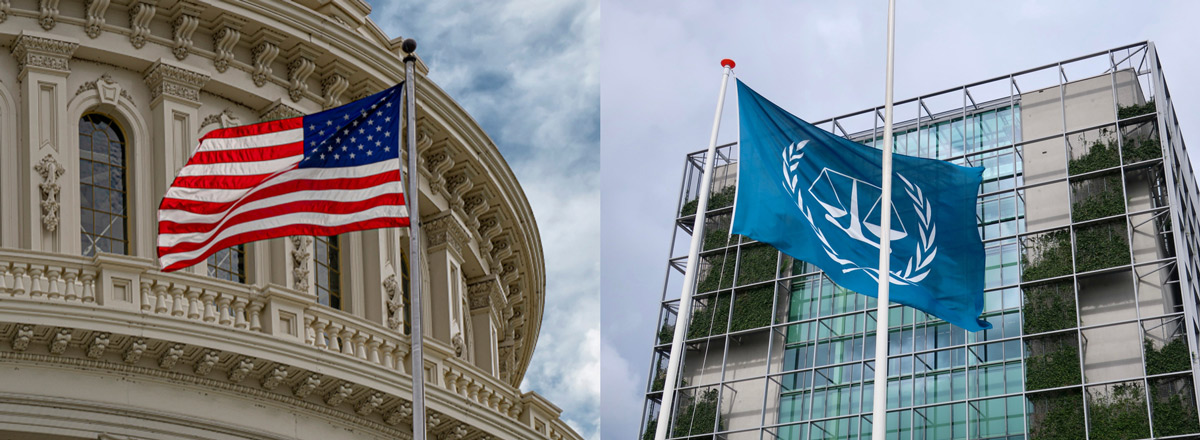On Wednesday 2 September, United States Secretary of State Michael Pompeo announced that International Criminal Court (ICC) Chief Prosecutor Fatou Bensouda and the Head of the Jurisdiction, Complementarity and Cooperation Division (JCCD) Phakiso Mochochoko have been designated by the US State Department for economic sanctions. The International Bar Association (IBA) condemns this latest action by the Trump Administration to harass senior officials working on behalf of victims of genocide, war crimes and crimes against humanity, and to disrupt ICC investigations.

The move follows the issuance of Executive Order 13928 (EO 13928) in June, which authorised the State Department to impose sanctions on individuals who ‘materially assist’ the ICC’s prosecution and investigation of US personnel and that of its allies.
IBA President, Horacio Bernardes Neto, stated: ‘The IBA is perplexed by the administration’s decision to include Ms Bensouda and Mr Mochochoko in a list of persons subject to financial sanctions by the US government – a list which should be reserved for human rights violators, not defenders. These sanctions seek to demean the ICC, with the intention to discredit a legitimate court in the eyes of the world. States should advance a strong and coordinated response to protect the work of the Court.’
With this designation in place, the provisions of EO 13928 become enforceable immediately, allowing for the seizure of all assets of non-US nationals under the country’s jurisdiction, including financial transactions in US dollars. In addition, US persons and entities are barred from cooperation with designated persons, creating the risk of civil and criminal prosecution.
IBA Executive Director, Mark Ellis, said: ‘Targeting the Chief Prosecutor and the Head of the JCCD creates a hostile environment that undermines accountability for atrocities. This is an attack on all Court staff and on the international justice system. The US sanctions are American exceptionalism at its worst, and send a message that human rights violators can threaten their way out of justice; the international community must reject these bullying tactics by supporting the Court and its officials.’
In his statement, Mr Pompeo cautioned that ‘individuals and entities that continue to materially support those individuals risk exposure to sanctions as well’. However, the Executive Order does not define material assistance. The vagueness of its provisions is an attempt by the administration to create a ‘chilling effect’, discouraging persons and entities from engaging with the Court in any shape or form.
Director of the IBA’s International Criminal Court and International Criminal Law (ICC & ICL) Programme, Kate Orlovsky, stated: ‘The Trump administration’s intent is clear: to deter cooperation with ICC investigations and cases. This is a petty move that illustrates the profound decrease in US support for the rule of law and the system of international justice that the US helped create. In the absence of US leadership, and while the US uses its power to obstruct justice for victims, each of the Court’s 123 States Parties should now voice their commitment to the ICC.’
ENDS
Notes to the Editor
- Related items:
- The IBA commenced the International Criminal Court and International Criminal Law (ICC & ICL) Programme in 2005. The Programme monitors issues related to fairness and equality of arms at the ICC and other Hague-based war crimes tribunals, and encourages the legal community to engage with the work of these courts. The IBA’s work includes thematic legal analysis of proceedings, and ad hoc evaluations of legal, administrative and institutional issues which could potentially affect the rights of defendants, the impartiality of proceedings and the development of international justice.
The Programme also acts as the interface between the Courts and the global legal community. As such, special focus is placed on monitoring emerging issues of particular relevance to lawyers and collaborating with key partners on specific activities to increase engagement of the legal community on ICC and ICL issues.
Programme information is disseminated through regular reports, expert discussions, workshops and other events and expert legal analysis on issues relevant to our mandate.
Based in The Hague, the IBA ICC & ICL Programme consults and interacts with court officials, civil society organisations, academics and international lawyers.
- The International Bar Association (IBA), the global voice of the legal profession, is the foremost organisation for international legal practitioners, bar associations and law societies. Established in 1947, shortly after the creation of the United Nations, it was born out of the conviction that an organisation made up of the world's bar associations could contribute to global stability and peace through the administration of justice.
For further information please contact: